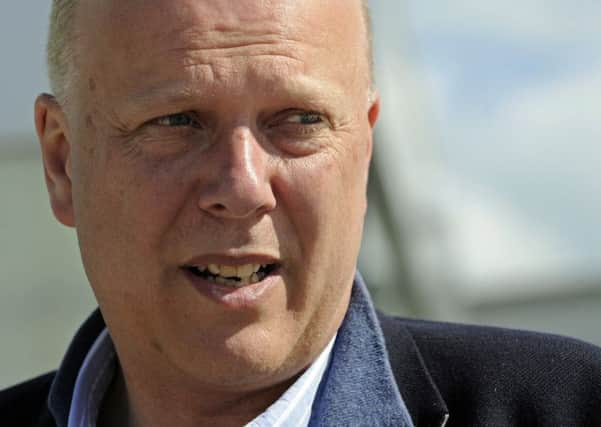'˜Taking back Southern franchise won't end dispute'


The rail operator, which also runs Thameslink and Gatwick Express trains, has been mired in a lengthy and bitter dispute with its staff for the last 15 months over the introduction of driver-only operation on Southern routes.
In an exclusive interview yesterday (Wednesday July 19), Transport Secretary Chris Grayling made it clear he wanted to see both sides reach a deal as quickly as possible for commuters.
Advertisement
Hide AdAdvertisement
Hide AdHe admitted Southern’s performance had been ‘appalling’ in 2016, which was down not only to industrial action, but also to the ‘dysfunctional way the railway has been run’.
The Government has faced repeated calls to strip GTR of its contract and take Southern services back into public ownership temporarily, similar to what happened with the East Coast network in 2009, before finding a new company to run the franchise.
In response Mr Grayling said: “People seem to think that by getting rid of Govia we would solve the dispute. We don’t. My focus is on making the railway perform better and trying to get a resolution to the dispute.”
The rail operator has been dogged by bad publicity since taking over Southern services in 2015, with passengers facing repeated delays and cancellations.
Advertisement
Hide AdAdvertisement
Hide AdHowever the Transport Secretary pointed out that performance has improved dramatically since the turn of the year until train drivers’ union ASLEF called a ban on overtime working in June, which forced Southern to cut services through a revised timetable.
Part of the Government’s modernisation plan is to roll out driver-only operation, which makes drivers responsible for opening and closing train doors rather than guards, who are then transferred to the roles of on-board supervisors.
In Mr Grayling’s words this was ‘not about cost-cutting or getting rid of jobs’, but delivering a ‘smarter’ rail system.
He described how unions such as the RMT ‘seem to be utterly intransigent in not accepting modern ways of working’, and was angry that a deal accepted by drivers working on Thameslink trains had been rejected by ASLEF’s Southern members.
Advertisement
Hide Ad